ECONYL® by Aquafil takes designing for the future seriously, always with the complete lifecycle of a product in mind. But they can’t do it alone. Students who hunger for innovation and possess the drive to lead the industry through innovative practices are the next torchbearers of sustainable design. ECONYL®, produced by Aquafil, is a versatile nylon that can be infinitely recycled and regenerated, making it a smarter solution that’s better for the planet than nylon made from oil. It’s made using 100% waste that would otherwise pollute the Earth – and performs the same as new nylon. Possibly the biggest benefit of using ECONYL® nylon is that it can offer up to a 90% reduction in global warming potential when directly compared, creating a positive environmental impact now and far into the future.
Aquafil is committed to designing a better future and has partnered with the MFA Textiles program at the esteemed Parsons School of Design to empower design students to embrace circular design and give them the tools to get us closer to a circular economy. In the inaugural year of the partnership, the students’ assignment was to create a piece – accessory, clothing, furniture, textile – using ECONYL® nylon that could be responsibly disposed of at the end of its original use. There was an immense amount of talent and creativity displayed, and we’re thrilled to share their designs and perspectives to inspire.
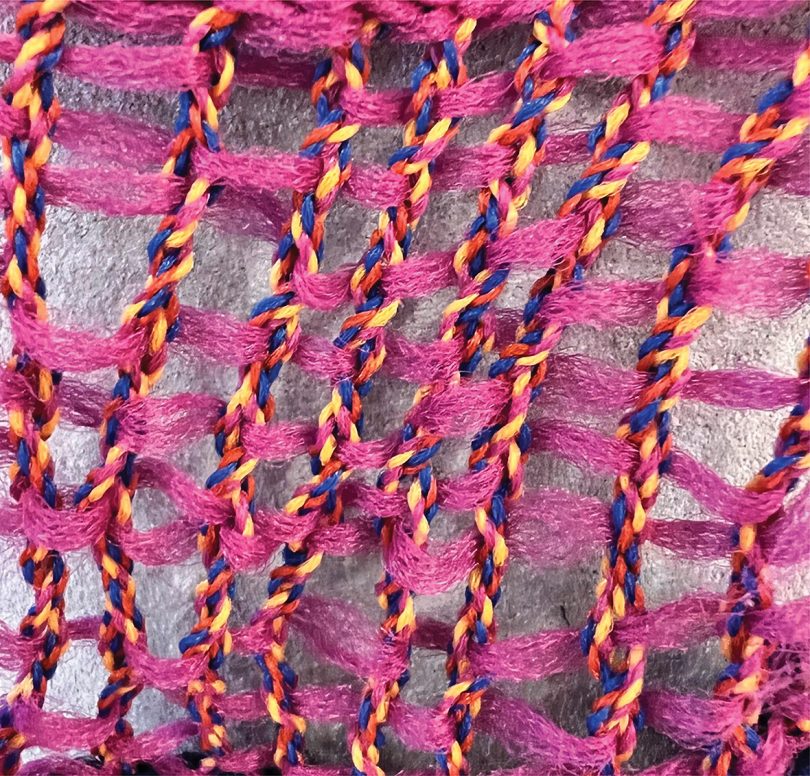
Hand-Weaved Drapery, Hessa Alsuwaidi
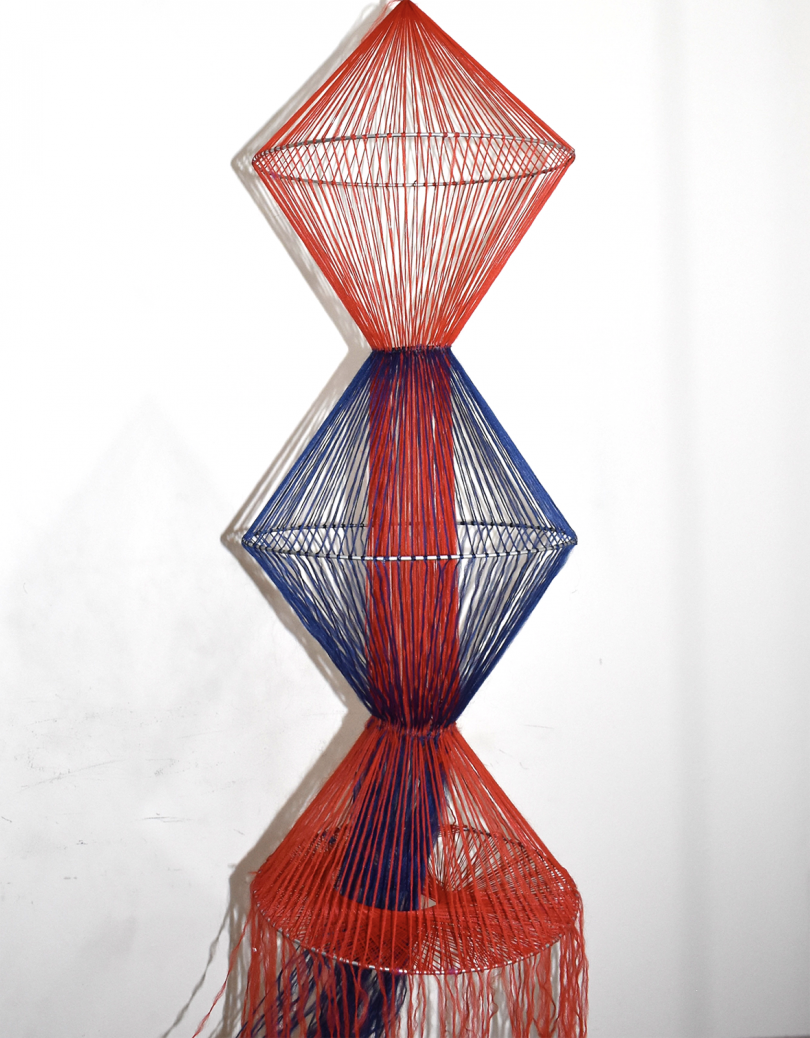
Geometric Lamp, Aradhita Parasrampuria
“This project highlights our shared priority of creating sustainable textile objects and products while giving the students freedom to explore and stretch their creativity in an educational space,” Preethi Gopinath, Program Director for MFA Textiles at Parsons explained. “Our particular program is engaged with sustainability, social justice, well-being, health, and beauty in artistic design. Working with a brand focused on environmental impact is a perfect fit for these students in all the various professional backgrounds they represent: fashion design, fine arts, and interior design.”
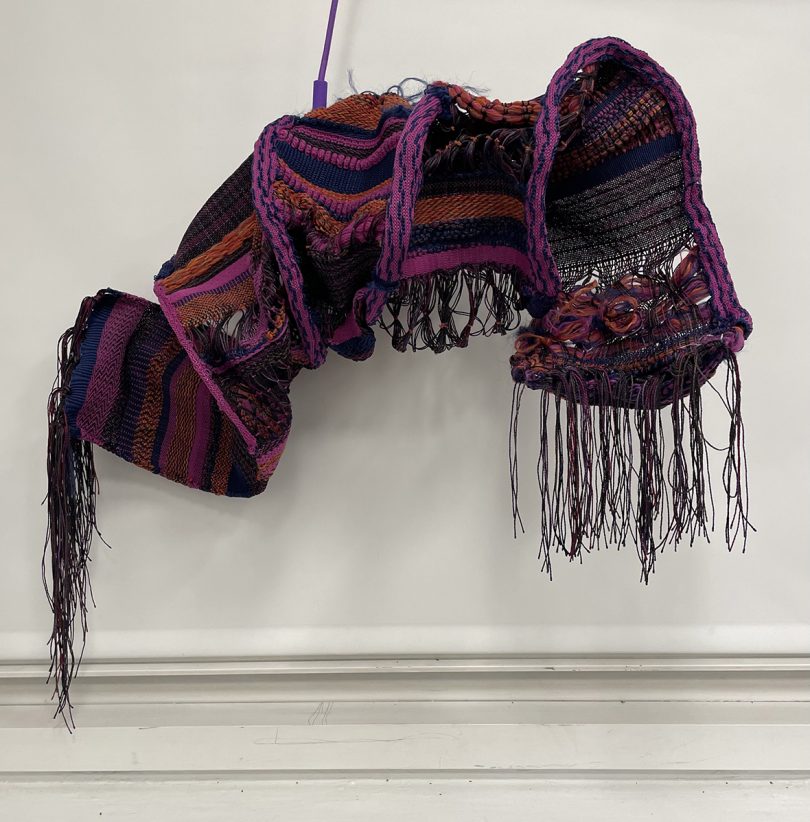
Handcrafted Lamp Shade, Jongbum Kim
Last year, the students produced designs using ECONYL® nylon, including fashion items, natural dyed yarn, lighting fixtures, art constructions, and woven upholstery. Many of them were inspired by the origin story of the ECONYL® fibers and included vibrant colors and shapes found in nature in their designs.
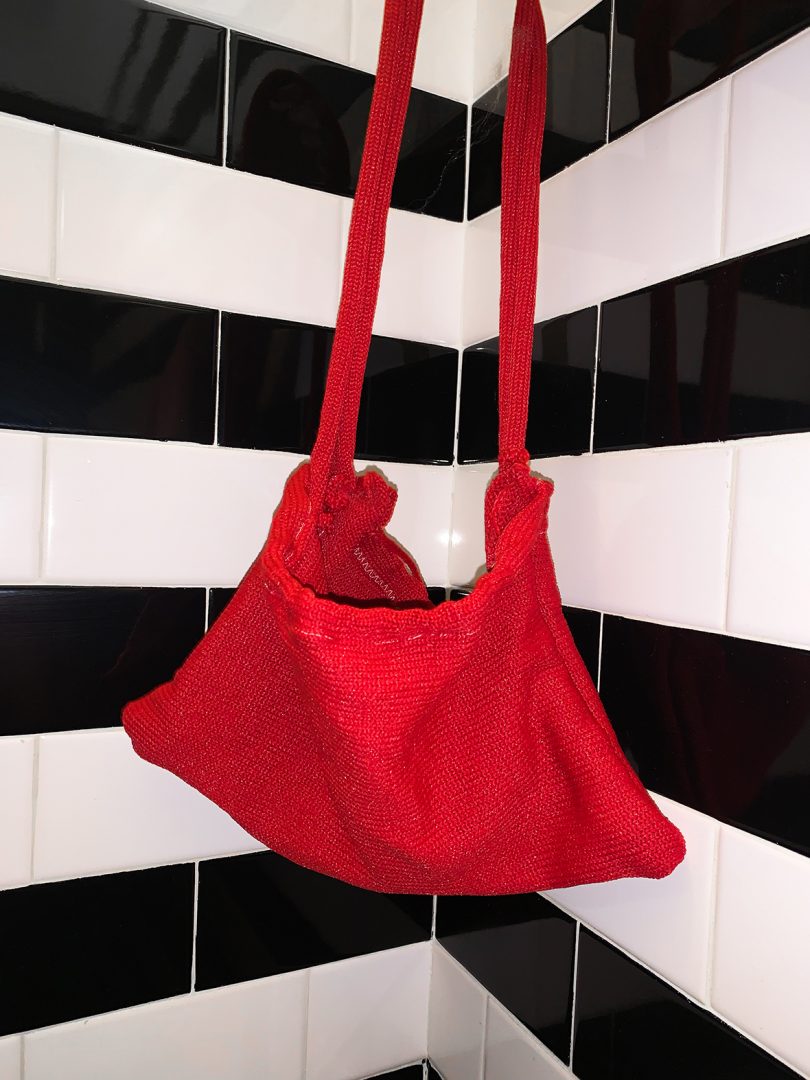
Hand-Knit Bags, Alyssa Schulman
“The ECONYL® brand’s circularity is inspiring to us. Its low carbon footprint gives us so much hope for the textiles industry, which up until this point has contributed a lot of pollution,” shared Alyssa Schulman. “I was shocked by how much we could do with the material. When we started experimenting with the ECONYL® yarn and everyone had such different ideas for how to use it, we were amazed by its versatility. It was really encouraging to see how much potential there is for an innovative material.”
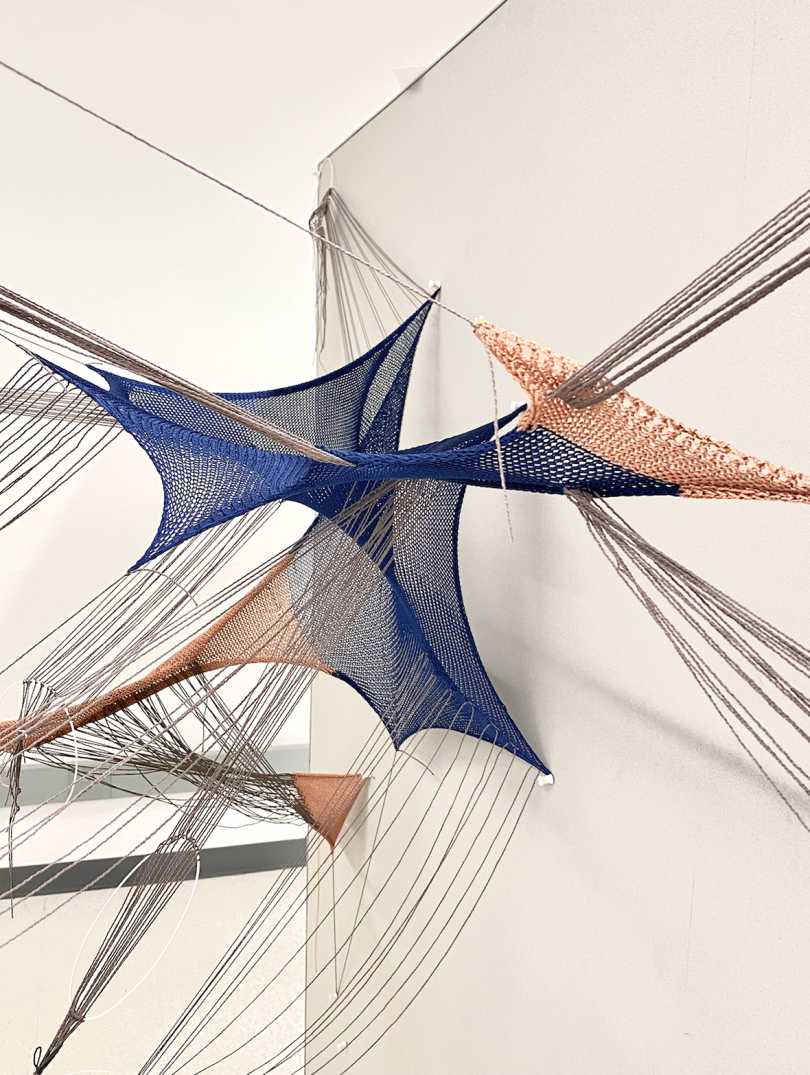
Eternal Ocean Textile Installation, Yifan Xu
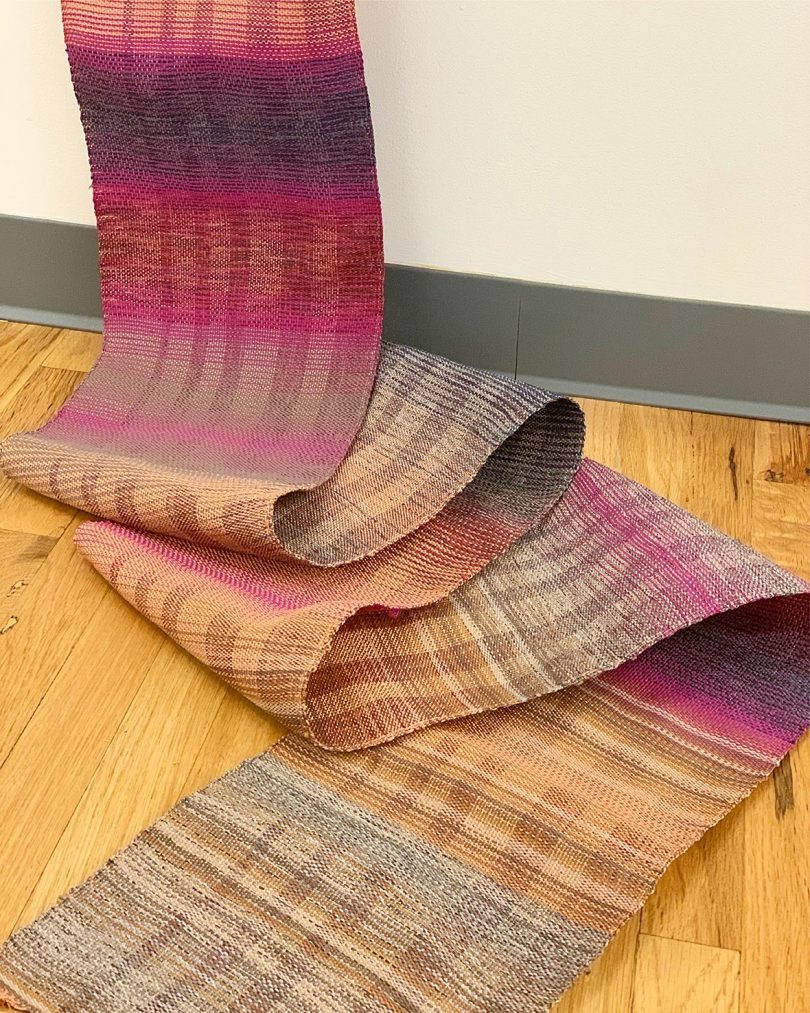
Handwoven Colorways Upholstery, Lenna Keshishian
Lenna Keshishian wove together yarns of various colors to create a bold, beautiful upholstery fabric. The length and width of the final design works perfectly as a table runner, ready to bring some extra color into the home. The weaving also holds the potential to be produced at a greater width and sold as yardage for upholstery fabric for chairs, pillows, sofas, headboards, and other interior pieces.
“Before learning more about ECONYL® nylon, I never really took into consideration the separation of everything at the end of a product’s lifecycle,” shared Lenna. “That to me is now always in the back of my mind in terms of recyclability.”
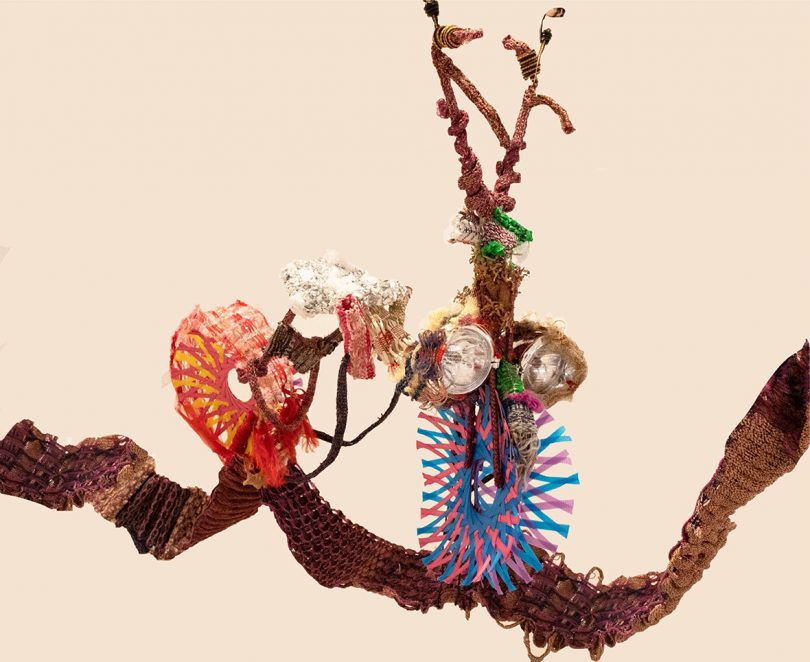
Waste to Art Installation, Nanxi Jiang
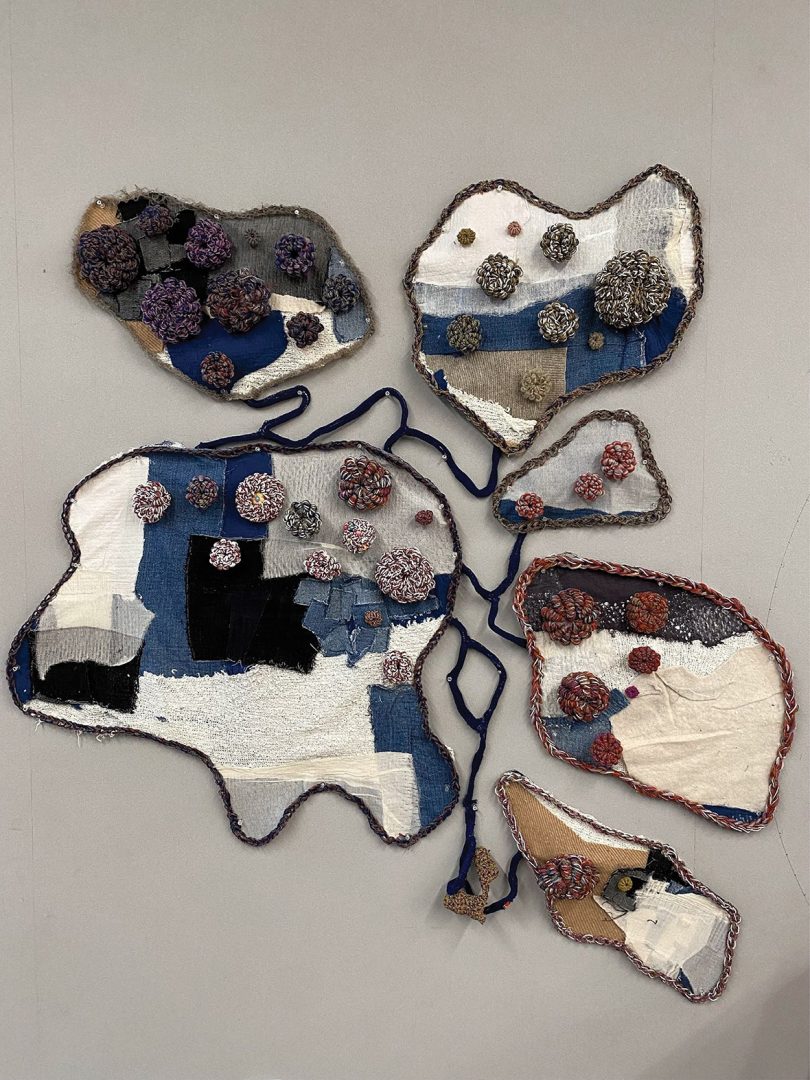
The Connection Between Humans and the Ocean Wall Art, Xiaofan Qu
This piece was inspired by the impact humans can have on the ocean. Xiaofan Qu used different colors commonly associated with the ocean as the background, then embellished with textiles and marbles that rotate with a sensor. The sensor is located inside of a glove and activates as the glove is stretched out. An example that proves even the smallest of actions can have a great impact on the environment and the world around us.
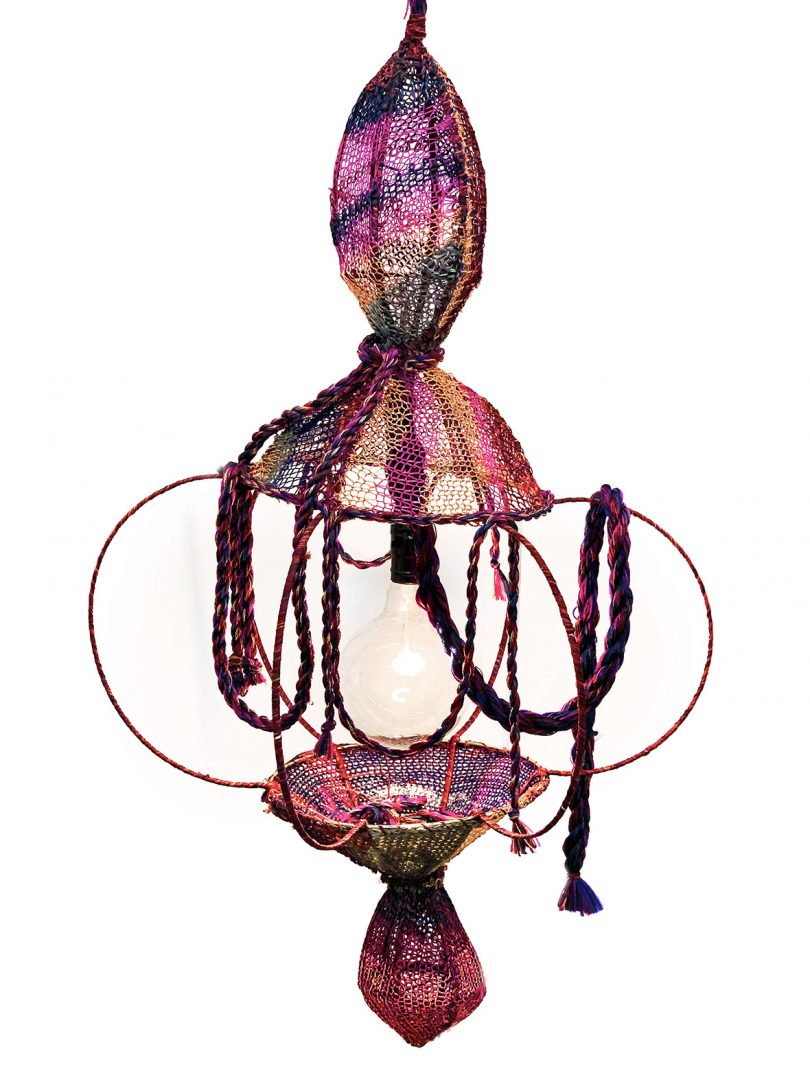
Moroccan Inspired Chandelier, Padina-Bondar
To recognize the hope and importance of innovative design students, the brand has created the ECONYL® x Aquafil: Designing for the Future Award. The Aquafil leadership team selected this year’s top three designs presented by the MFA Textiles students at Parsons, who were awarded with the opportunity to share their pieces at NeoCon 2022 in June. The ECONYL® brand is proud to showcase exactly what the award embodies: the future of design.
The 2022 ECONYL® x Aquafil: Designing for the Future Award was presented to Jason Greenberg for his production of 100% natural dyes, Hannah Kim for her ocean-inspired LED lamp, and Xinyu Wang for her Zori-inspired sandals.
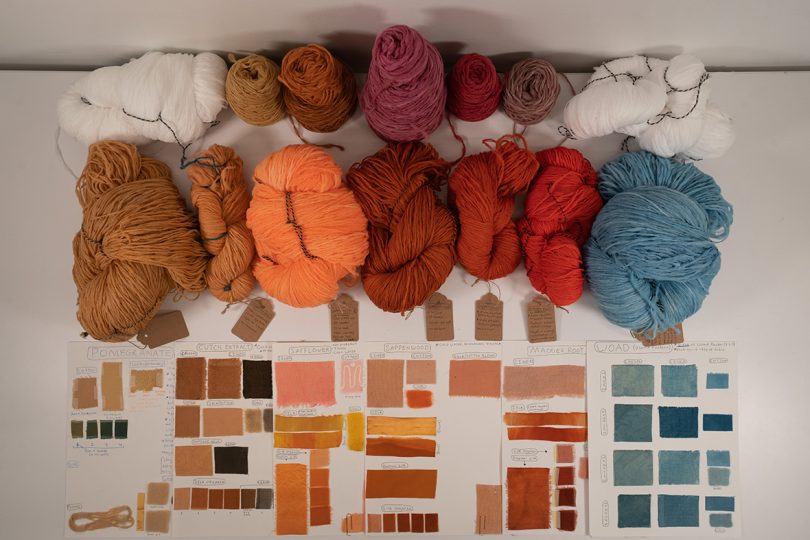
Naturally Dyed ECONYL® Yarn, Jason Greenberg
Jason Greenburg discovered that ECONYL® yarn responds beautifully to natural dyes. He was able to produce a vibrant array of colors using 100% natural materials such as pomegranate extract, logwood extract, and cochineal (whole beetles).
“My first impressions of the material were its strength and absorption rate,” Jason shared. “The ECONYL® fiber absorbs the dyes more efficiently than natural fibers. I only needed to put them in the dye pots for 20 to 30 minutes as compared to overnight, and it produced more vibrant colors than some of the natural fibers I’ve dyed. I really fell in love with it.”
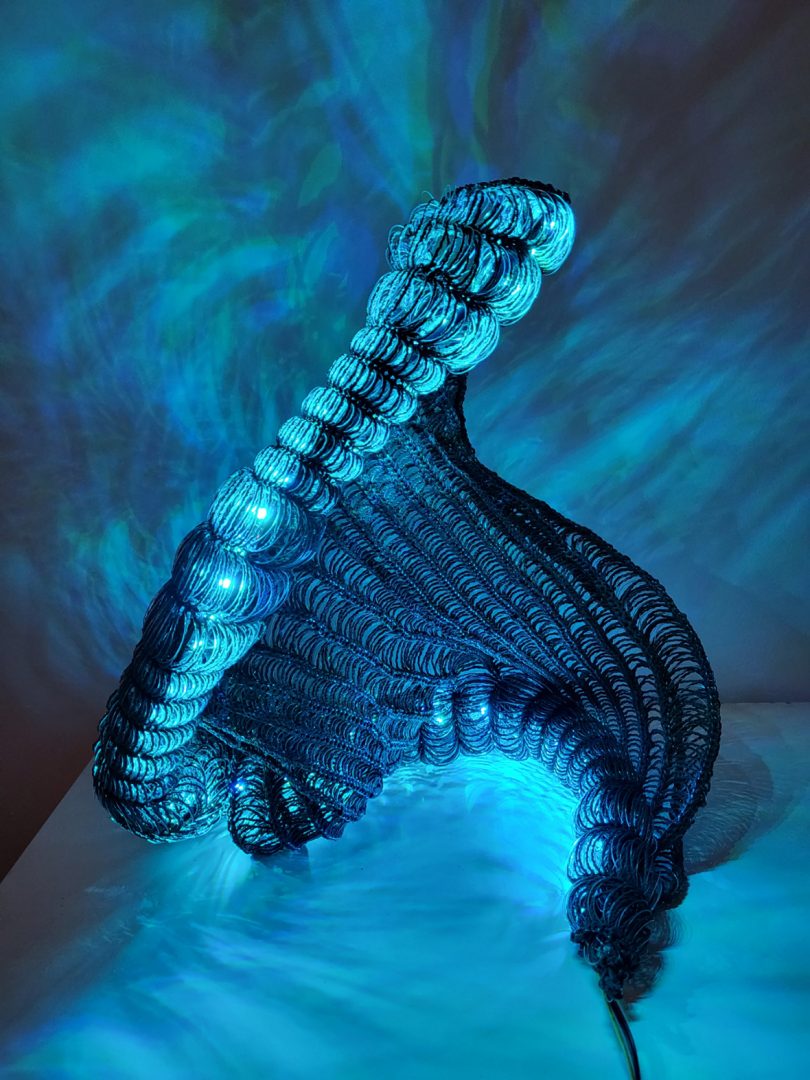
Ocean-Inspired LED Lamp, Hannah Kim
Turning waste into treasure inspired by the ocean, Hannah Kim created a knitted sculpture lamp exuding its tranquility. She integrated LEDs and infrared sensors to create a color-changing effect that easily adapts to the user’s preference. When activated, the LEDs replicate the moon shining on crashing waves.
Hannah shared, “By the end of the project I fell in love with ECONYL® yarn and its qualities. Because of the material’s ability to curl and make very organic shapes, I decided I want to use the rest of the ECONYL® yarn we have to develop more of my lighting pieces, including for my thesis project.”
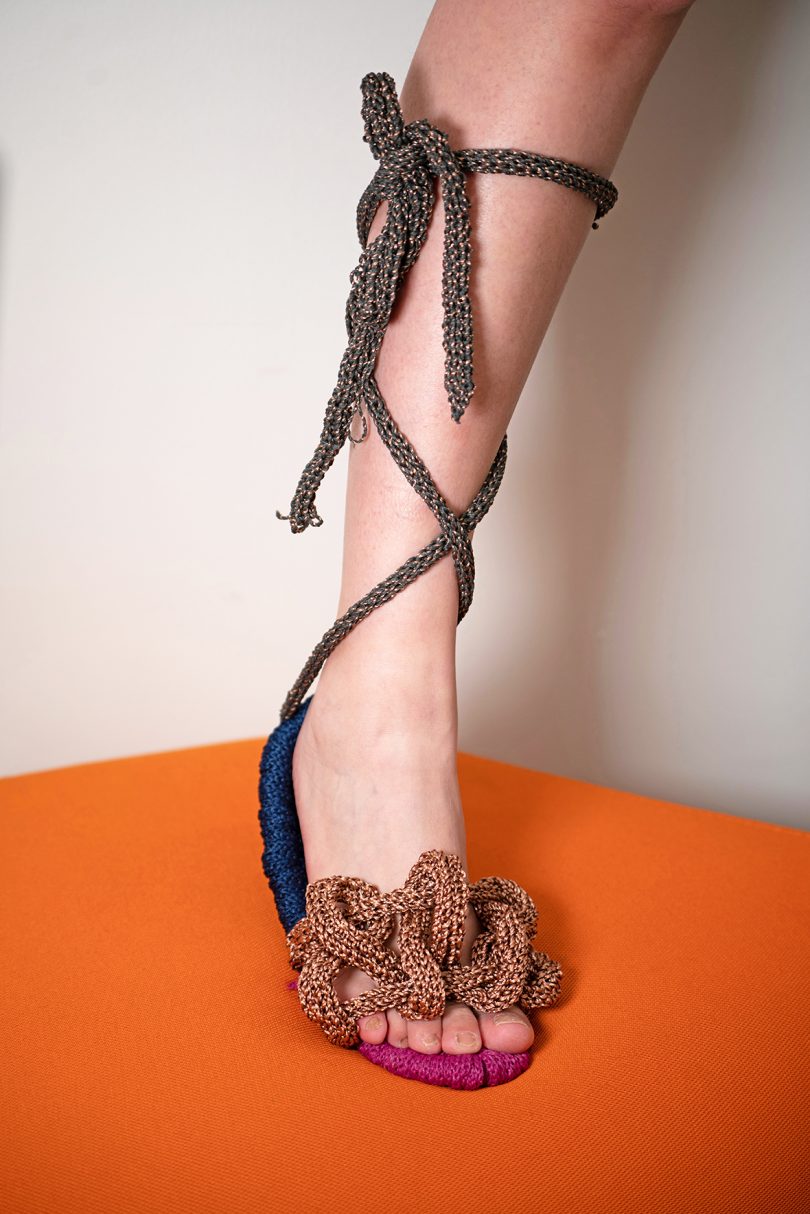
Footwear Product, Xinyu Wang
Xinyu Wang used a Japanese hand-weaving technique called Zori to create a pair of knit sandals. This technique uses only the weaver’s body as a tool, giving the maker a deeper connection with the materials they’re working with. Xinyu designed the shoe shape based on the concept that nature both gives and receives from us simultaneously.
“My design was inspired by the circular nature and durability of ECONYL® nylon, leaning into the concept that nature both supports and relies on us,” shared Xinyu. “I am so appreciative of this recognition by Aquafil and imagine that ECONYL® nylon will be the future of sustainable footwear.”
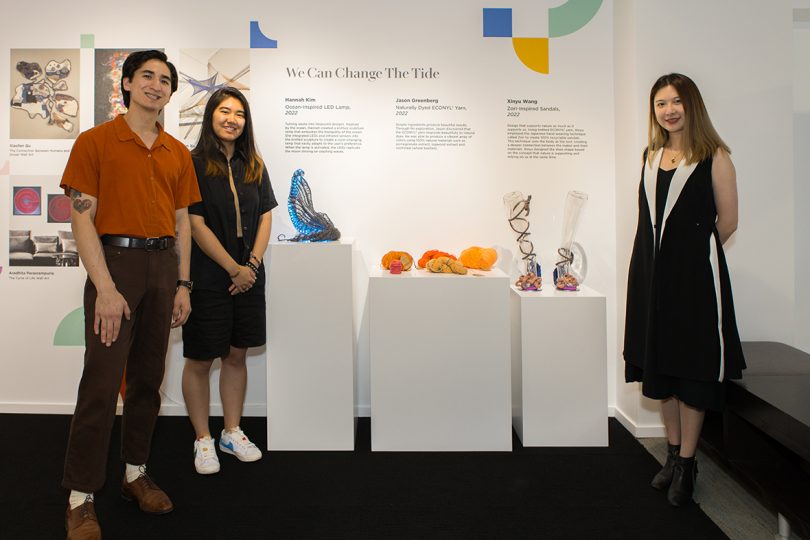
ECONYL® x Aquafil: Designing for the Future Award Winners
The Aquafil team was impressed with the wide range of designs this year’s students created and are in awe of their inventiveness and artistic expression through the use of sustainable design. But where the most joy came from was seeing the perspective students gained from working with ECONYL® yarn. The future of design really is in their hands, and we all look forward to witnessing the impact the students’ work will have in the art and design industries. We hope their pieces remind you that we all play a part in designing a better future.

Kelly Beall is senior editor at Design Milk. The Pittsburgh-based graphic designer and writer has had a deep love of art and design for as long as she can remember, and enjoys sharing her finds with others. When undistracted by great art and design, she can be found making a mess in the kitchen, consuming as much information as possible, or on the couch with her three pets. Find her @designcrush on social.
You can follow Kelly Beall on Twitter, Facebook, Pinterest, and Instagram. Read all of Kelly Beall’s posts.
